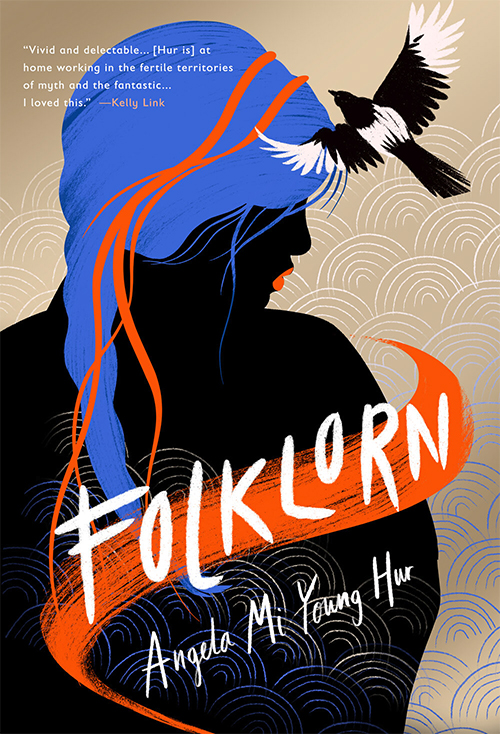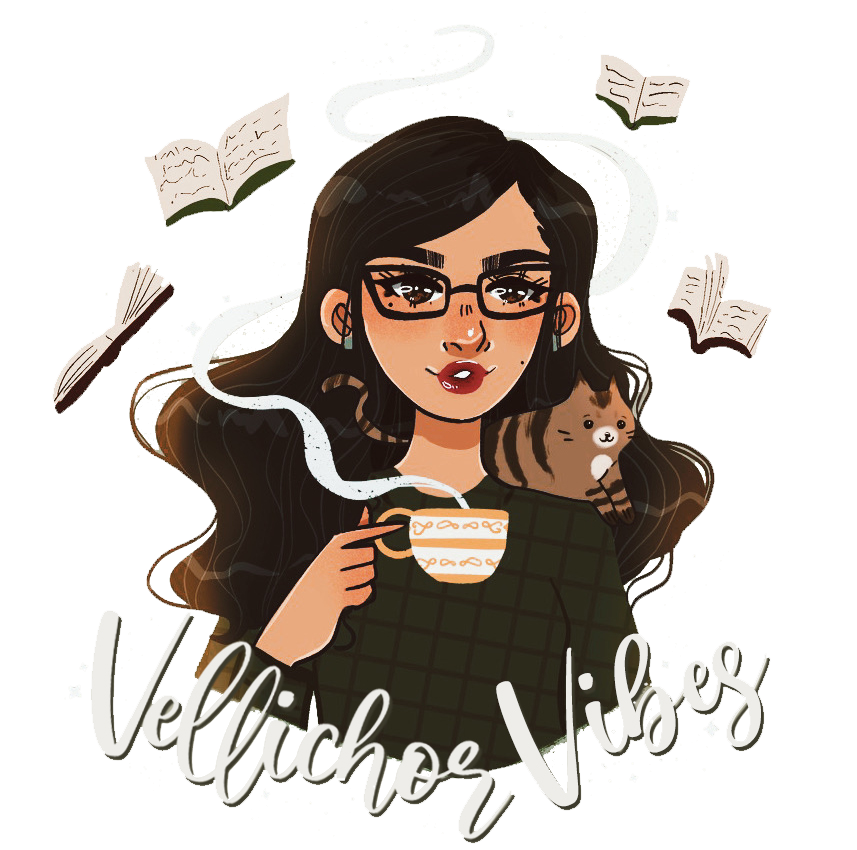Folklorn by Angela Mi Young Hur uses magical realism to explore Korean mythology, cultural identity, mental health, and the enduring bonds of family. The novel opens with Elsa Park, a Korean-American experimental physicist conducting doctoral research on neutrinos (also known as ghost particles). She is confident in her studies, has no filter, and a prickly disposition, making her decidedly unlikable to those around her—yet an interesting character for readers to follow. Upon learning of her mother’s sudden passing, Elsa is forced to return home, where she begins a journey of self-discovery as she explores the Korean folktales her mother has left behind.

As if anybody wants to be told that their ability to endure is their greatest virtue. No wonder we get invasions and occupations, war and asshole husbands. What kind of stories, I wonder, do the white countries tell of themselves?
Angela Mi Young Hur, Folklorn
As far back as she can remember, Elsa’s mother has warned her that the women in their bloodline are doomed to live out the traumatic events outlined in a series of Korean folktales. Elsa constantly questions the abiding narratives that define cultural hegemony, so it’s in her nature to doubt her mother’s warnings; however, when she begins to see the supposedly imaginary friend she had as a child, Elsa interprets it as a portent of things to come and realizes there must be more to her mother’s stories. It’s either that, or she’s inherited her mother’s mental health issues, and the former is somehow easier to stomach than the latter, so she commits herself to researching the origins of her mother’s stories.
Folklorn is an especially nuanced examination of identity and race as they pertain to immigrants and diasporic communities. Elsa’s parents moved to America to make a better life for themselves, although they could not outrun the problems resulting from their own personal flaws. In addition to generational traumas, Elsa and her brother Chris struggle with the “model minority” myth, as well as “the freedom not to be grateful, indebted and beholden” like their immigrant parents. And Oskar, whom Elsa meets while learning about her mother’s folktales, is a Korean orphan adopted by Swedish parents and raised to ignore his race completely. Together, these seemingly disparate narratives provide a robust, decolonized illustration of the immigrant experience seldom seen in other novels.
We have full right to these stories of our ancestors, even more so because we are of the diaspora. These tales—like us—have traveled far across time and space, to be remade and understood in a new light.
Angela Mi Young Hur, Folklorn
The narrative structure in this book is difficult to follow as it jumps across time and space and struggles to straddle the line between academic book project and contemporary novel. The first of three parts, which consumes a little over 40% of the novel, was most challenging to read. Dense language and physics concepts attempt to teach readers about Elsa’s doctoral work while juxtaposing her passion for ghost particles with the Korean folktales that continue to haunt her. However, it’s simply too tedious for non-experts to digest while also attempting to establish other expository details at the beginning of the book. Elsa’s work is easiest to understand during a brief conversation she has with a cab driver, where she uses a metaphor about ice cream flavors to explain her research to an ordinary person. I would argue that’s all we need to know about it. Simply because Elsa is always thinking about her work does not mean we need to read about her thinking about her work, particularly because the more interesting aspects of Folklorn are about her family’s heritage and the mystery surrounding her mother’s stories.
Similarly, much of the dialogue about Korean myth, provenance, and book history in the third part of the novel is so heavily academic that it feels like a chore to read unless I’m getting a CV line for my efforts. I like a well-researched novel just as much as anyone else, but many parts of Folklorn read more like a scholarly publication (or conversations and correspondence about one). I repeatedly became impatient with the plot and pacing while Elsa and Oskar waxed poetic about their research.
Expats complain about leaving phantom lives behind, the other life unlived. Immigrants are too busy surviving to whine about forsaken selves. But now repatriated—I’m even more ghostly.
Angela Mi Young Hur, Folklorn
Execution of the magical realism in this novel is disorienting, but I’m beginning to think that’s by design. The Korean folktales are real insofar as they’re stories with histories that span across centuries, but Elsa’s spiraling mental state paired with ill-advised efforts to self-medicate left me confused as to how we ought to perceive her visions. Sometimes I’d be halfway into one of her hallucinations before I realized what was happening. In retrospect, I wonder if the point was to illustrate just how unsettling and frustrating the experience is for Elsa. It is this ambiguity that makes the novel’s conclusion strangely wistful yet satisfying.
As an Asian-American academic with immigrant parents in a diaspora community, I related strongly to much of the experiences Elsa describes, and I particularly enjoyed learning about her family in the portions of the novel that highlight her past and her time with her brother. I also appreciate that Folklorn tackles the ambitious task of unpacking the many aftereffects of colonialism that continue to impact Asian diaspora communities. However, I wish the novel focused less on Elsa’s academic personality so that this important story could be a little more accessible for readers.
Thank you to NetGalley and Erewhon Books for sharing an advanced reader copy of this book in exchange for an honest review.
